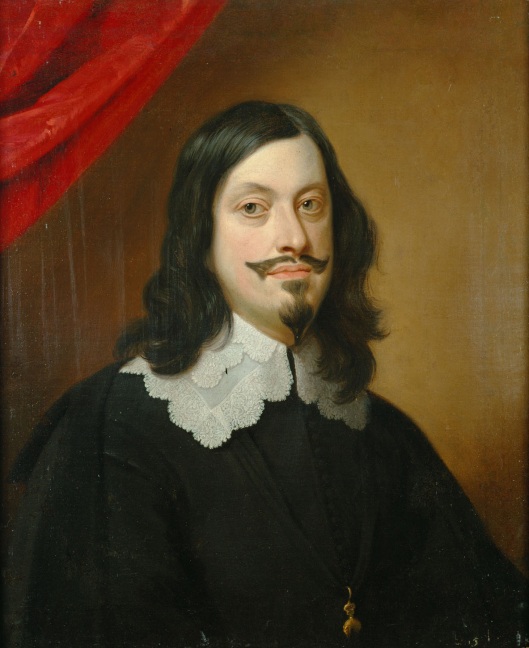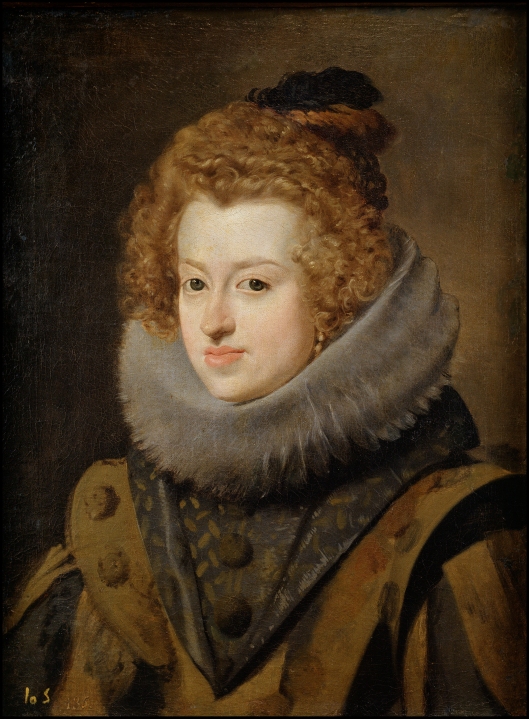Tags
Ferdinand III, Holy Roman Emperor, Holy Roman Emperor Ferdinand II, Hungary and Croatia and Archduke of Austria, Infanta Maria Anna of Spain, King Ferdinand IV of Bohemia, King of Bohemia, The Thirty Years War
Ferdinand III (July 13, 1608 – April 2, 1657) was from 1621 Archduke of Austria, King of Hungary from 1625, King of Croatia and Bohemia from 1627 and Holy Roman Emperor from 1637 until his death in 1657.
Ferdinand was the first Habsburg monarch to be recognized as a musical composer.
Ferdinand was born in Graz as third son of Emperor Ferdinand II of the House of Habsburg and his first wife, Maria Anna of Bavaria, and was baptised as Ferdinand Ernst. He grew up in Carinthia with loving care from his parents and he developed great affection for his siblings and his father, with whom he always found a consensus in future disagreements.

Ferdinand III, Holy Roman Emperor, King of Bohemia, Hungary, Croatia and Archduke of Austria
At his father’s court he received religious and scholarly training from Jesuits and Christoph Simon von Thun (head of Ferdinand’s Imperial court and household) had greatly influenced the education of the young archduke.
After the deaths of his brothers Charles (1603) and Johann Karl (1619), he was designated as his father’s successor and systematically prepared to take over the reign. Like his father, he was a devout Catholic, yet he had a certain aversion to the influence of the Jesuits who had ruled his father’s court.
Ferdinand became Archduke of Austria in 1621. On December 8, 1625 he was crowned King of Hungary, on November 27, 1627 King of Bohemia. Ferdinand enhanced his authority and set an important legal and military precedent by issuing a Revised Land Ordinance that deprived the Bohemian estates of their right to raise soldiers, reserving this power solely for the monarch.
His father was unable to secure him the election as King of the Romans at the Regensburg diet of 1630. After he had unsuccessfully applied for the supreme command of the Imperial army and participation in campaigns of Wallenstein, he joined Wallenstein’s opponents at the Imperial court in Vienna and was involved in the arrangements on his second deposition in the beginning of 1634.
He married the Spanish Infanta, his cousin Maria Anna of Spain, after years of negotiations with Spanish relatives in 1631. Although in the middle of the war, this elaborate wedding was celebrated over a period of fourteen months.
Infanta Maria Anna of Spain was the daughter of King Felipe III of Spain and his wife Archduchess Margaret of Austria the daughter of Archduke Charles II of Austria and Maria Anna of Bavaria and thus the paternal granddaughter of the Holy Roman Emperor Ferdinand I. Her elder brother was the Archduke Ferdinand, who succeeded as Emperor Ferdinand II in 1619, the father Emperor Ferdinand III.

Infanta Maria Anna of Spain, Holy Roman Empress, Queen of Bohemia, Hungary, Croatia and Archduchess of Austria
The marriage produced six children, including his successors, King Ferdinand IV of Hungary and Croatia and Holy Roman Emperor Leopold I.
His loving and intelligent wife and her brother, the Spanish Cardinal Infante Fernando, had great influence on Ferdinand and formed the most important link between the Habsburg courts in Madrid, Brussels and Vienna in the difficult period of the war for Habsburg following the death of Wallenstein.
Commander in chief
Archduke Ferdinand was finally elected King of the Romans at the Diet of Regensburg on December 22, 1636. Upon the death of his father on February 15 1637, Ferdinand became Holy Roman Emperor Ferdinand III.
By the time Ferdinand became Emperor, vast sections of the imperial territories had been absolutely devastated by two decades of war.
Ferdinand ascended the throne at the beginning of the last decade of the Thirty Years’ War and introduced lenient policies to depart from old ideas of divine rights under his father, as he had wished to end the war quickly.
As the numerous battles had not resulted in sufficient military containment of the Protestant enemies, and confronted with decaying Imperial power, Ferdinand was compelled to abandon the political stances of his Habsburg predecessors in many respects in order to open the long road towards the much delayed peace treaty. Although his authority among the princes was weakened after the Thirty Years War, in Bohemia, Hungary and the Austria, however, Ferdinand’s position as sovereign was uncontested.
His political adviser Trauttmansdorff advanced to the position of Prime Minister of Austria and Chief diplomat, but was replaced by Johann Ludwig von Nassau-Hadamar in 1647 as his health had begun to deteriorate. Trauttmansdorff was succeeded as Obersthofmeister by the later Prime Minister Johann Weikhard of Auersperg who also taught the royal heir Ferdinand IV. Unlike his father, Ferdinand III employed no spiritual counsellor.
